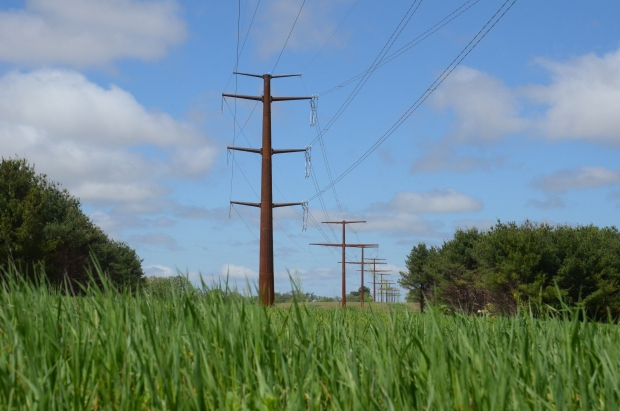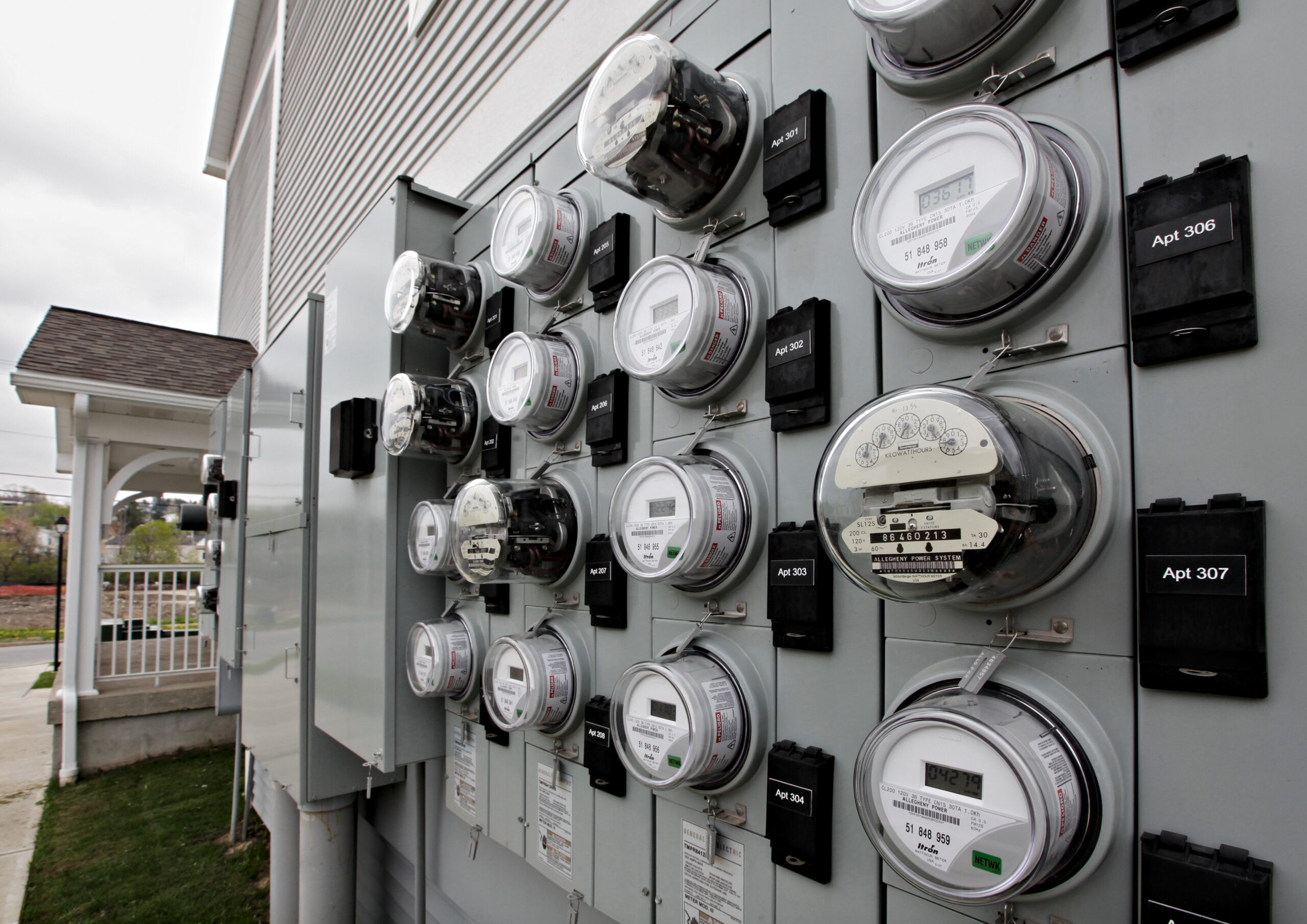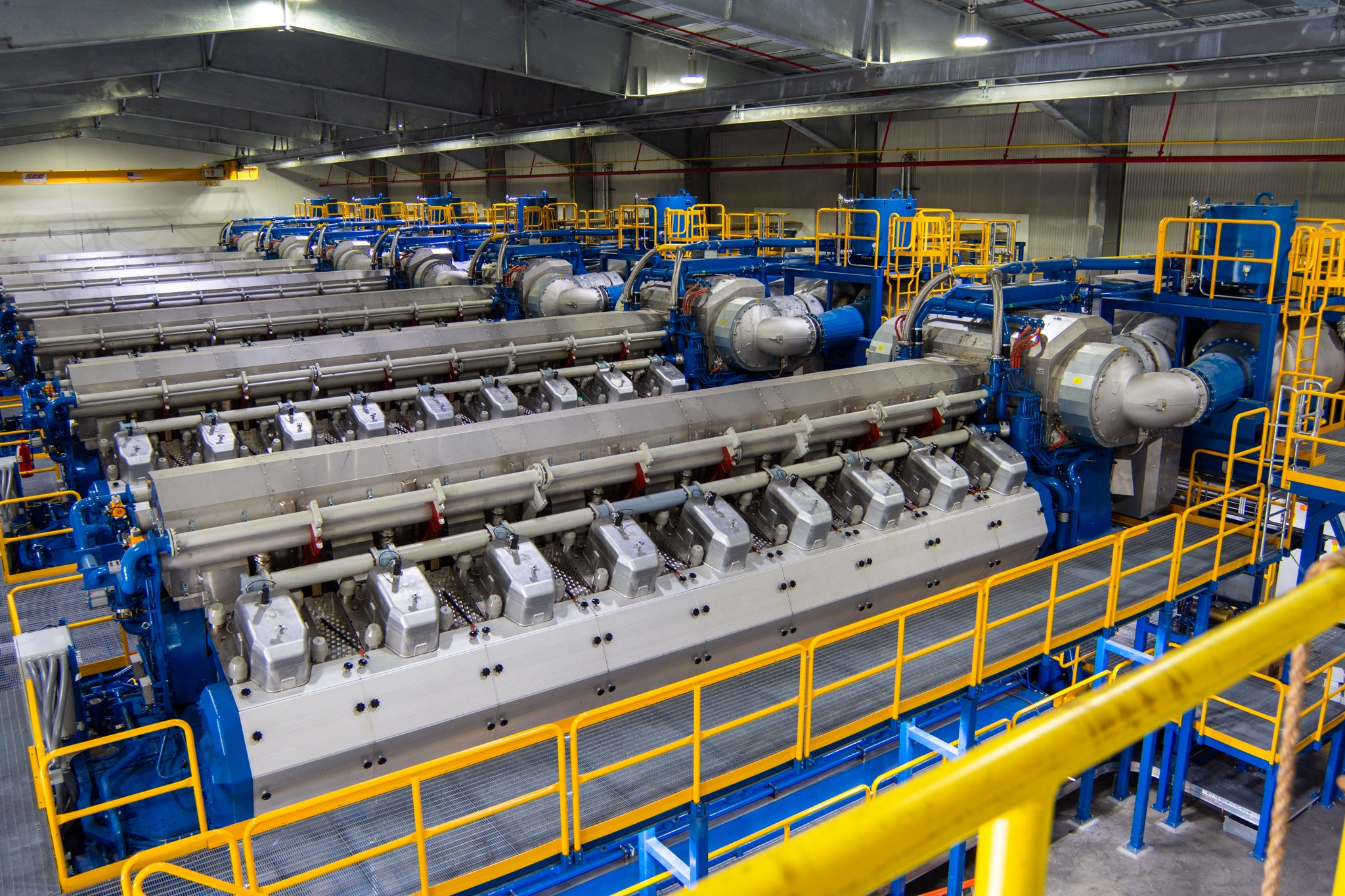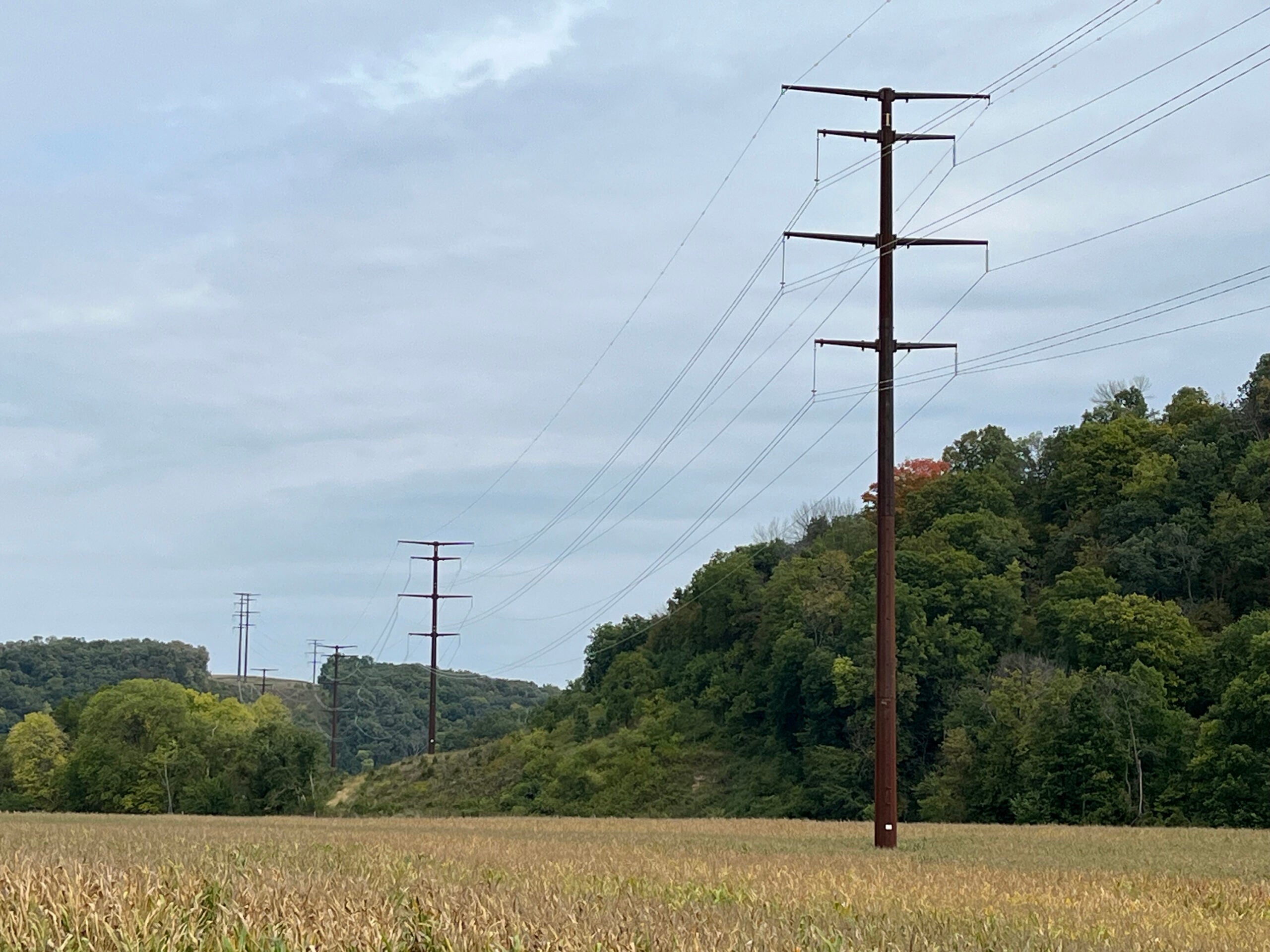Owners of a controversial $492 million transmission line are appealing a federal judge’s decision that blocked the project’s crossing through the Upper Mississippi River National Wildlife Refuge.
American Transmission Co., ITC Midwest, and Dairyland Power Cooperative are building the 345-kilovolt Cardinal-Hickory Creek transmission line that would run more than 100 miles from Dane County to Dubuque County in Iowa.
The project is facing multiple legal challenges in state and federal courts brought by the Driftless Area Land Conservancy and Wisconsin Wildlife Federation. In a Jan. 14 ruling, a federal judge sided with conservation groups as part of a lawsuit filed against federal agencies that issued approvals for the project.
Stay informed on the latest news
Sign up for WPR’s email newsletter.
The groups argued the Rural Utilities Service violated federal environmental law because the agency failed to fully review alternatives to the project. U.S. District Judge William Conley agreed the agency’s analysis of alternatives was too narrow and sent the environmental impact statement back for further review. Conley also found building the line there isn’t compatible with the purpose of the refuge.
Utilities are asking a federal appeals court to put a hold on that ruling until an appeals panel decides the case. They argue federal agencies fully complied with federal environmental law, adding the project can cross the refuge with “appropriate environmental conditions.”
“The Federal Court’s ruling is another example of the mistaken sentiment that the project is detrimental to the environment. In actuality, the Cardinal-Hickory Creek Transmission Line Project is the essential bridge that enables renewable energy to be brought to market, resulting in a significant reduction in carbon emissions,” ITC Midwest President Dusky Terry said in a news release.
Utilities began construction last fall on the Wisconsin side of the project.
Attorneys for the conservation groups want to see the judge’s ruling upheld and will fight the appeal filed by utilities. They along with Wisconsin’s Citizens Utility Board have called on utilities to halt construction of the transmission line following the federal judge’s ruling. They argued utilities are recklessly spending ratepayer money, accusing the project’s owners of building a “bridge to nowhere.”
Construction needs to halt in order to fairly consider alternatives to the project, according to Scott Strand, an attorney with the Environmental Law and Policy Center that’s representing groups in the lawsuit.
“We do think that we need to have that to happen in order to have a fair consideration of alternatives, and to preserve the refuge from what the law was intended to do, which was to keep out developments like this and to reserve this land for wildlife purposes and for wildlife dependent recreation,” said Strand.
Attorneys for land conservation groups have argued the project would transmit more power from fossil fuel sources like coal and natural gas plants than renewable energy sources like wind and solar. The groups have pushed for a full evaluation of alternatives that may include alternative crossings, modernizing existing transmission lines, energy conservation and renewable energy projects that include battery storage.
Utility executives contend there aren’t economical alternatives to the transmission line that would tie renewable energy into the power grid, saying battery storage and energy conservation are insufficient.
The Wisconsin Public Service Commission approved the project in 2019. The line is one of nearly 20 “multi-value” projects identified to increase transmission and renewable energy use that were proposed by the Midcontinent Independent System Operator, or MISO, which manages the power grid in 15 states.
As part of the project, Wisconsin ratepayers would pay about 15 percent of the cost to build the line and the remainder would be spread out over the MISO region. Utilities have already spent around $161 million on the line’s construction in Iowa and Wisconsin.
The project’s owners argue in their appeal that a delay of two months in the line’s in-service date could cost utilities building the Badger Hollow Solar Farm between $15 to $20 million in 2024. They contend the line will reduce congestion on the grid, improve reliability and provide more access to renewable resources.
“The Cardinal-Hickory Creek transmission line will help ensure the cost-effective, renewable and reliable energy that consumers are seeking is available and affordable. MISO, Wisconsin regulators and Iowa regulators have determined the project is necessary to reduce energy costs,” said ATC Director of Construction Sarah Justus in a statement.
As of November, the project’s owners say 114 renewable generation projects totaling around 17 gigawatts relied on the line’s construction to tied into the regional power grid. Utilities say the project would cut carbon emissions by 150,000 to 1.2 million tons each year.
Utilities are hoping to build the line and place it in service by December of next year. A spokesperson for the Rural Utilities Service says it doesn’t comment on pending litigation.
Editor’s note: American Transmission Company is underwriter of Wisconsin Public Radio.
Wisconsin Public Radio, © Copyright 2025, Board of Regents of the University of Wisconsin System and Wisconsin Educational Communications Board.





